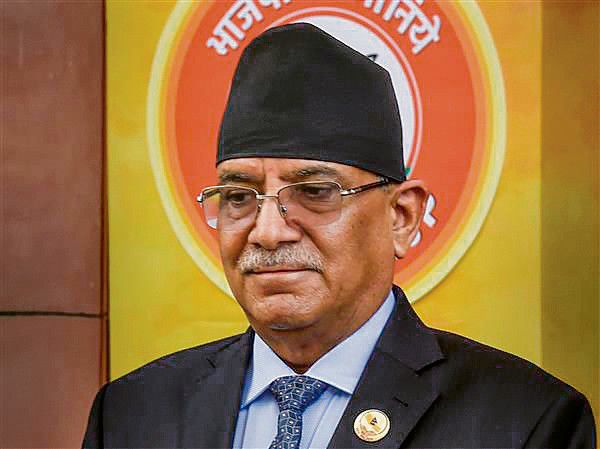Nepal govt in crisis again, two parties strike deal to oust PM
Kathmandu, July 2
In a dramatic development, politically fragile Nepal’s two largest parties have inked a midnight power-sharing deal to form a new government to replace the ruling coalition led by Prime Minister Pushpa Kamal Dahal ‘Prachanda’, who on Tuesday refused to resign and asserted that he would rather face a confidence vote.
Won’t quit, will face trust vote: Prachanda
Embattled Nepal PM Pushpa Kamal Dahal Prachanda has decided not to resign from the post despite an agreement reached between the country’s largest parties to form a new coalition government. In a meeting of the Communist Party of Nepal (Maoist Centre) office-bearers held in Baluwatar on Tuesday, Prime Minister Prachanda said he would rather face a vote of confidence in Parliament than resign from the post, the party Secretary Ganesh Shah said. PTI
The agreement, finalised between Nepali Congress President Sher Bahadur Deuba and Communist Party of Nepal-Unified Marxist Leninist (CPN-UML) chairman KP Sharma Oli on Monday night, outlines the ministerial division, provincial leadership roles and a rotation for the prime ministerial position.
Deuba, 78, and Oli, 72, — both former premiers — agreed to share the Prime Ministerial position on a rotation basis for the rest of the term of the Parliament, said ex-foreign minister Narayan Prakash Saud, who is a Nepali Congress central member.
Nepali Congress, the largest party in the 275-member House of Representatives, has 89 seats at present, while CPN-UML has 78 seats. Their combined strength of 167 is sufficient for a majority of 138 seats in the lower house. Prachanda’s party has 32 seats.
The two leaders met on Saturday to lay the ground for a potential new political alliance between the two parties, following which Oli’s CPN-UML ended its association with the Prachanda-led government barely four months after extending support to it.
Prachanda, 69, a former guerilla leader, has won three votes of confidence in Parliament during his one-and-a-half-year term.
Nepal has had 13 governments in the last 16 years, indicating the fragile nature of the Himalayan nation’s political system.
Under the agreement, the CPN-UML chief Oli will lead the government in the first phase of the remaining term of Parliament. For the remaining term, Deuba will be the prime minister.
The two leaders tentatively agreed to form a new government, amend the Constitution, and work out a power-sharing formula, which they reportedly shared with a few confidants, media reports said, quoting multiple senior leaders from both parties.









